Um Ihnen ein optimales Erlebnis zu bieten, verwenden wir Technologien wie Cookies, um Geräteinformationen zu speichern und/oder darauf zuzugreifen. Wenn Sie diesen Technologien zustimmen, können wir Daten wie das Surfverhalten oder eindeutige IDs auf dieser Website verarbeiten. Wenn Sie Ihre Einwillligung nicht erteilen oder zurückziehen, können bestimmte Merkmale und Funktionen beeinträchtigt werden.
Die technische Speicherung oder der Zugang ist unbedingt erforderlich für den rechtmäßigen Zweck, die Nutzung eines bestimmten Dienstes zu ermöglichen, der vom Teilnehmer oder Nutzer ausdrücklich gewünscht wird, oder für den alleinigen Zweck, die Übertragung einer Nachricht über ein elektronisches Kommunikationsnetz durchzuführen.
Die technische Speicherung oder der Zugriff ist für den rechtmäßigen Zweck der Speicherung von Präferenzen erforderlich, die nicht vom Abonnenten oder Benutzer angefordert wurden.
Die technische Speicherung oder der Zugriff, der ausschließlich zu statistischen Zwecken erfolgt.
Die technische Speicherung oder der Zugriff, der ausschließlich zu anonymen statistischen Zwecken verwendet wird. Ohne eine Vorladung, die freiwillige Zustimmung deines Internetdienstanbieters oder zusätzliche Aufzeichnungen von Dritten können die zu diesem Zweck gespeicherten oder abgerufenen Informationen allein in der Regel nicht dazu verwendet werden, dich zu identifizieren.
Die technische Speicherung oder der Zugriff ist erforderlich, um Nutzerprofile zu erstellen, um Werbung zu versenden oder um den Nutzer auf einer Website oder über mehrere Websites hinweg zu ähnlichen Marketingzwecken zu verfolgen.

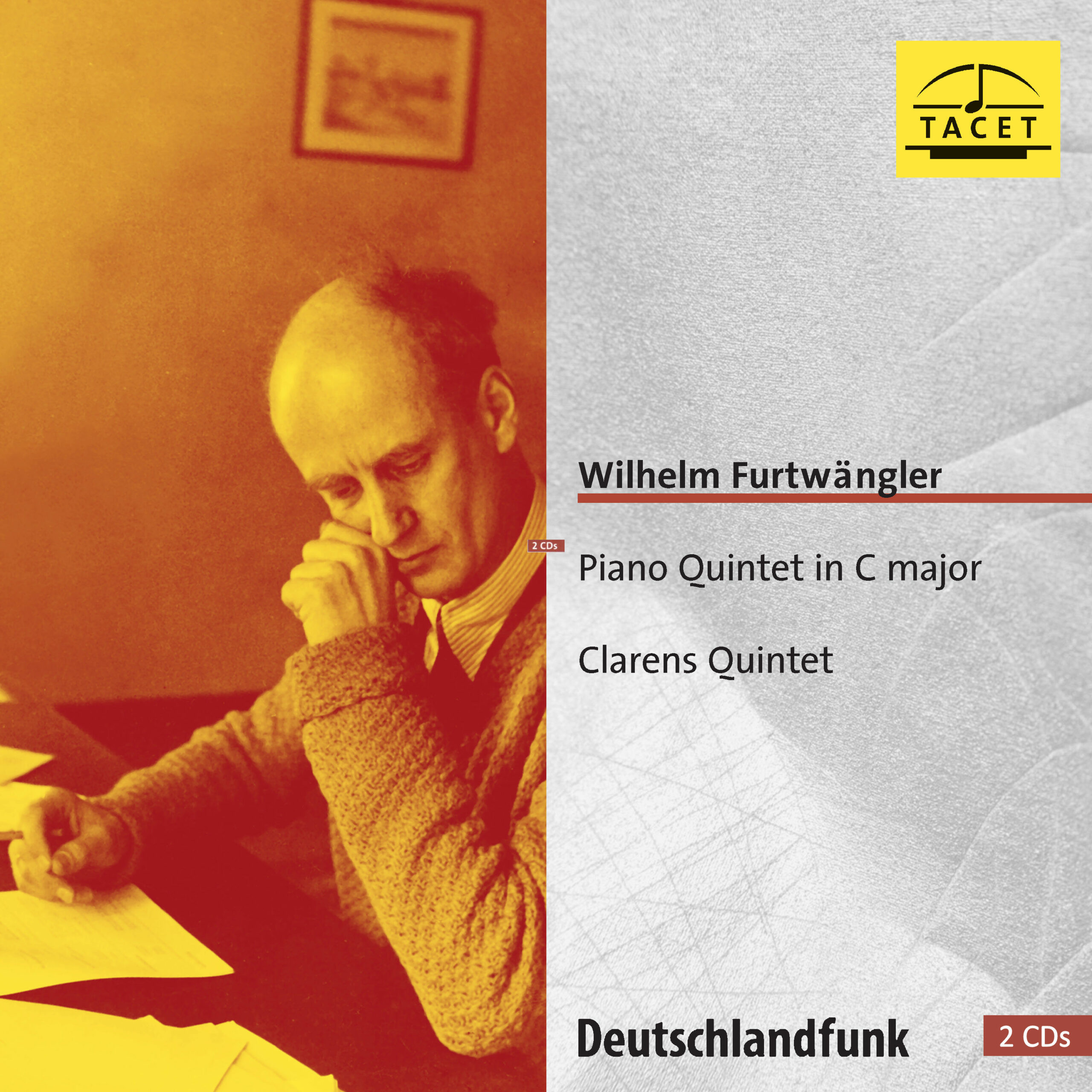
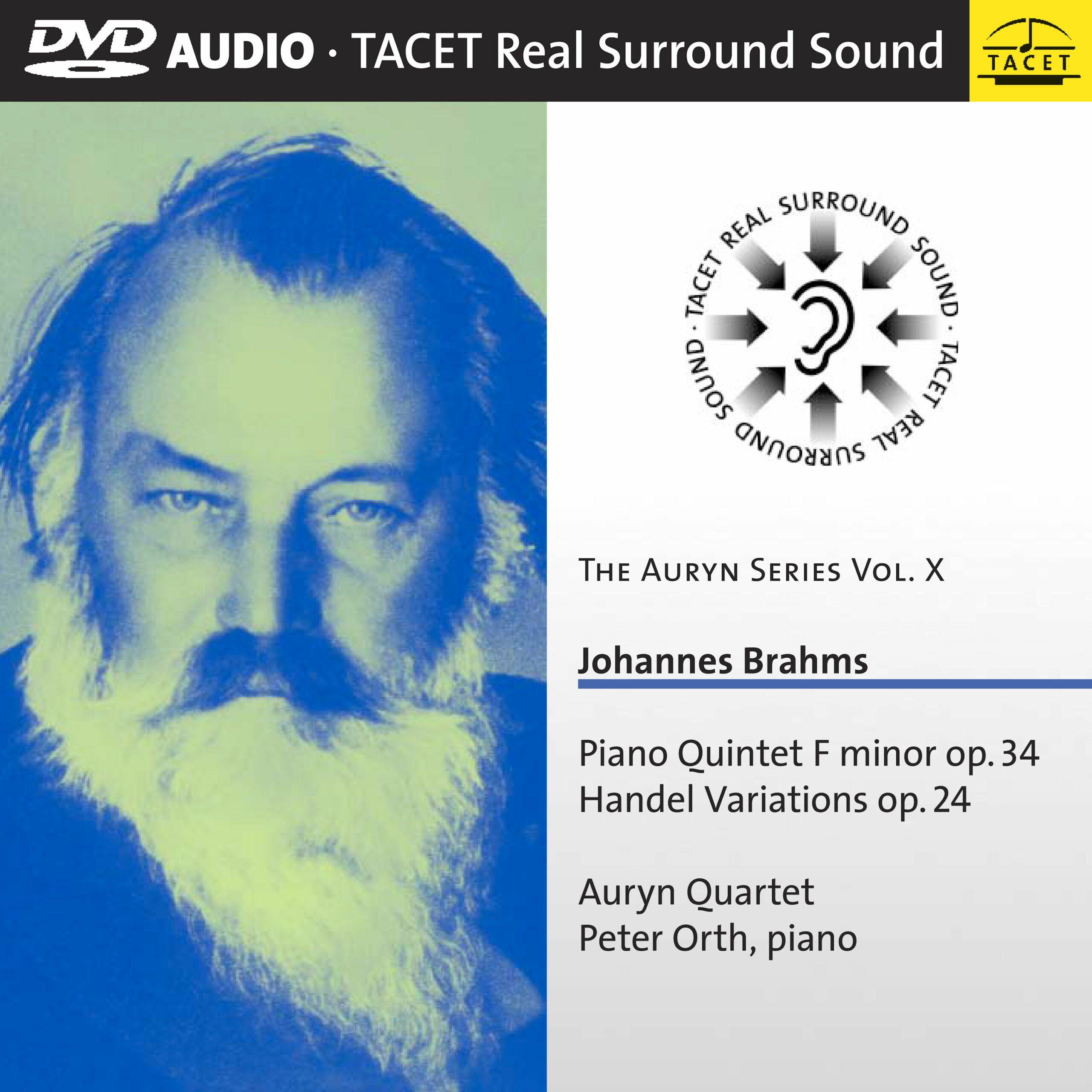
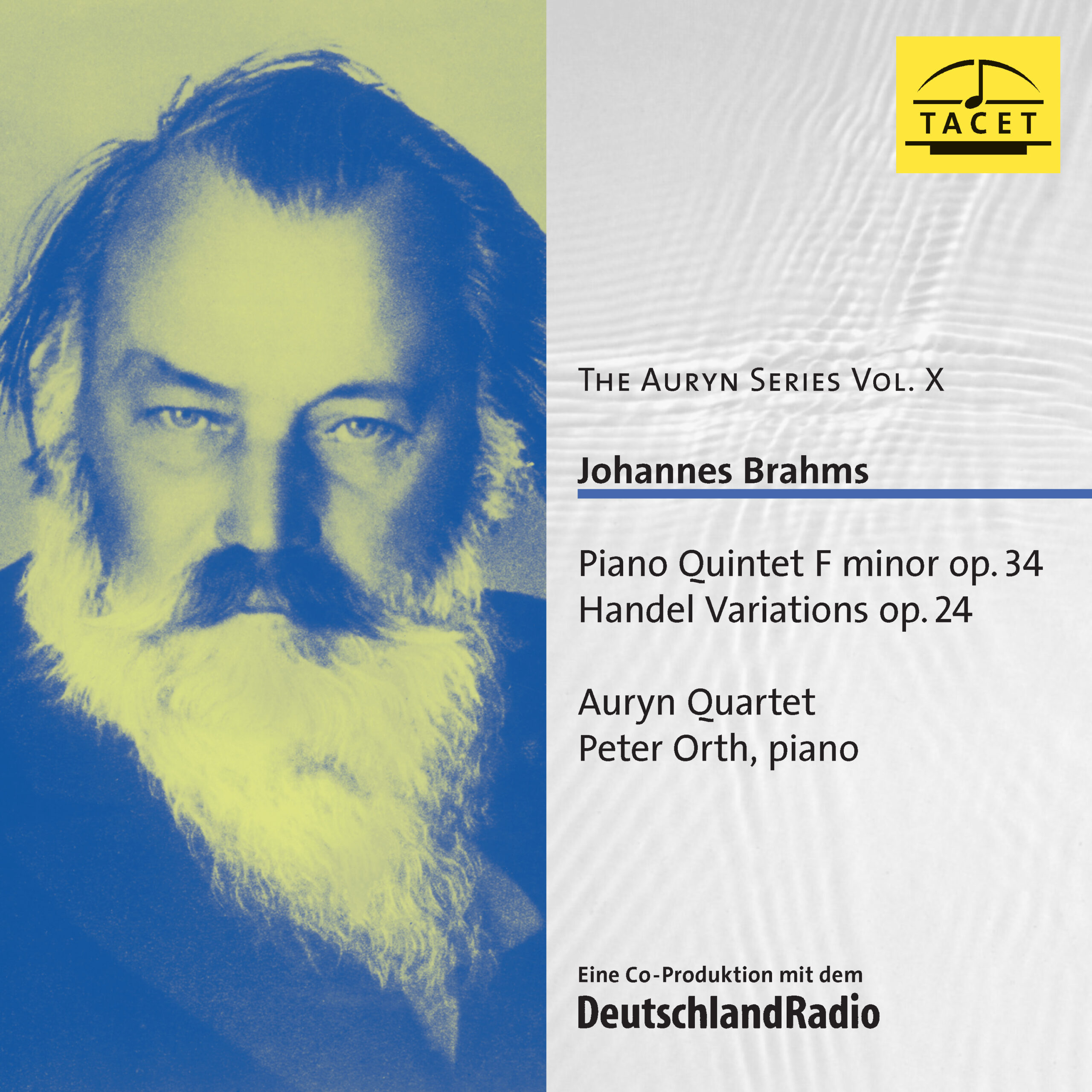
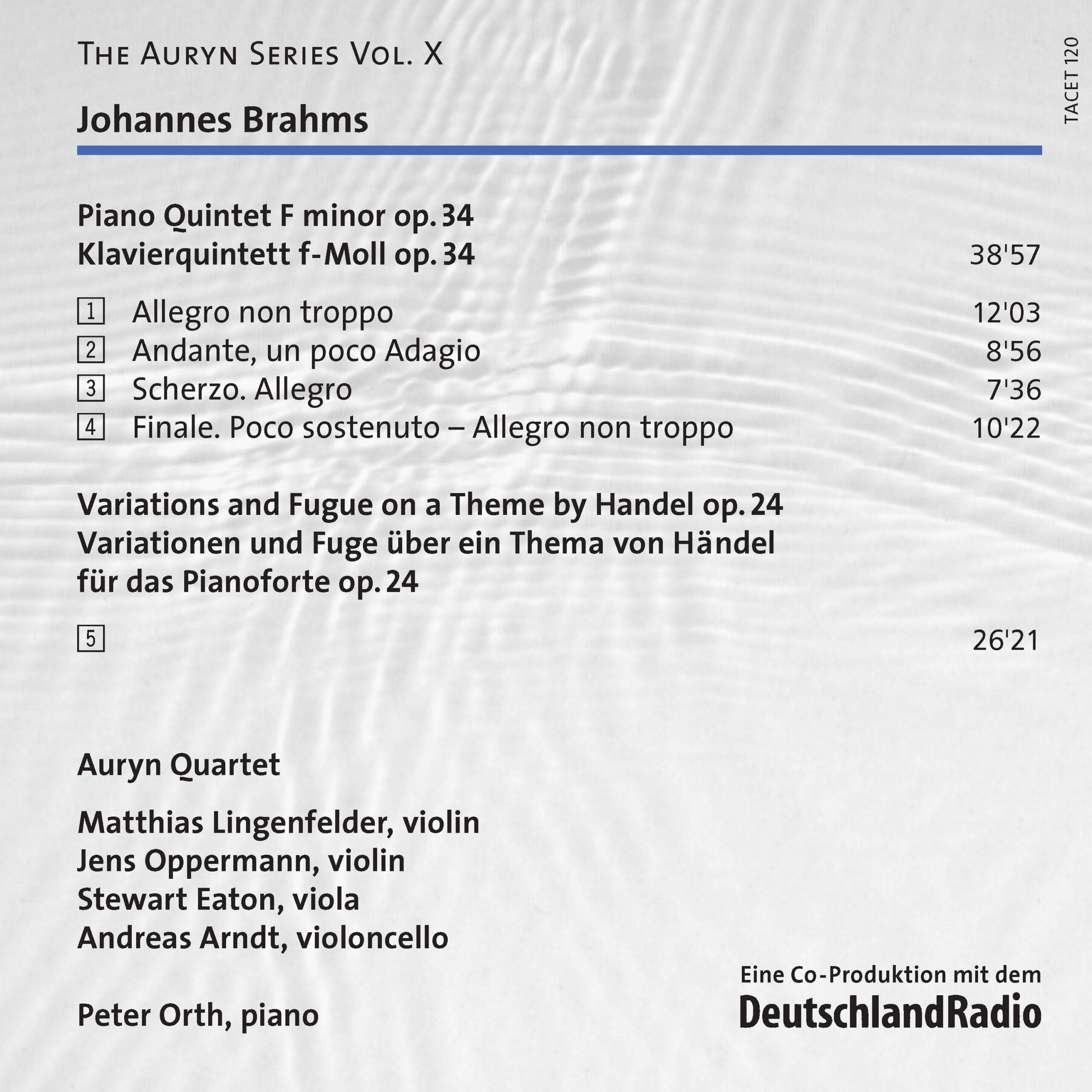
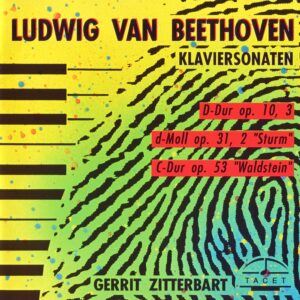

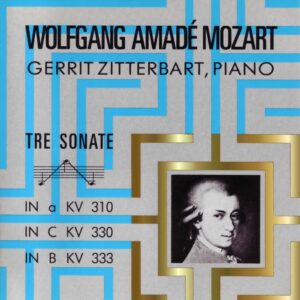
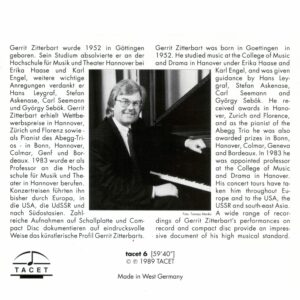
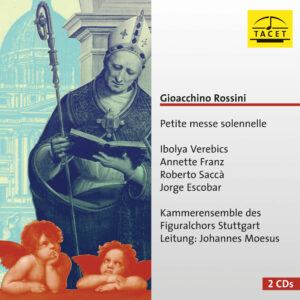
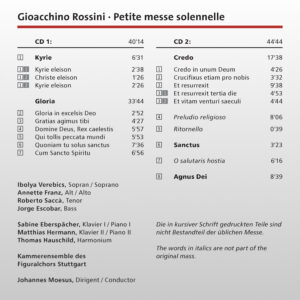


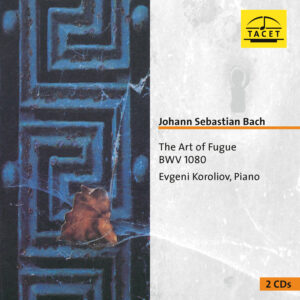
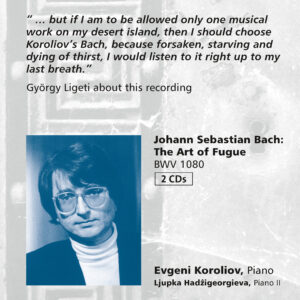
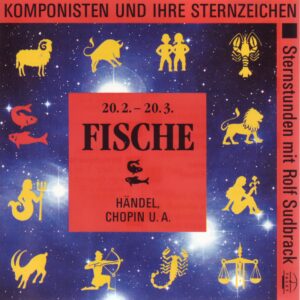
Stereoplay –
In a co-production with DeutschlandRadio Berlin, the label TACET continues its series of recordings with the Auryn Quartet—already up to its tenth installment. The performance of Brahms’ Piano Quintet is distinguished by unusual clarity, a rare virtue in Brahms’ chamber music with piano. The sonic layers of the strings and the keyboard are effectively and structurally convincingly set against one another, with the American pianist Peter Orth proving to be an exceptionally sensitive partner whose playing never upsets the balance. That this carefully calculated sensitivity does not come at the expense of expressiveness is shown, for example, in the immensely expressive shaping of the Andante. Throughout, the full dynamic range is explored, especially in the strongly contrasted Scherzo. Orth’s rich palette of touch is also evident in his performance of the Handel Variations, combining brilliance with delicacy—and in this respect even surpassing the old DG Brahms edition with Daniel Barenboim.
Alfred Beaujean
Klassik heute –
The magnificent F minor Quintet by Johannes Brahms was the master’s problem child. Originally conceived as a string quintet with a second cello, it first underwent reworking into a sonata for two pianos before finally arriving at its ideal form as a quintet for piano and strings, which gives no hint of the difficulties of its genesis. Despite its classical structure, it is a work of Sturm und Drang, full of passionate agitation, deeply felt lyricism, mysterious passages, and radiant breakthroughs. Particular weight is borne by the energetic Scherzo, while the veiled finale leads neither to victory nor serenity, but ends with an unusually abrupt gesture.
The grandest recording of this masterpiece (unfortunately long out of print) was once presented by Rudolf Serkin with the Budapest String Quartet. Now his pupil Peter Orth sets out to follow in his footsteps. Together with the Auryn Quartet, he offers a gripping performance that seeks to combine energetic attack with beautiful tone. Superb ensemble playing is a given with this formation, but beyond that, the playing of Orth and the Auryns possesses a marvelous directedness, which clarifies the function of each section within the whole and fundamentally excludes any impression of the mechanical. Careful use of vibrato and slight stretching on melodically important notes lend each phrase extraordinary plasticity and vitality.
Not always satisfying is the balance among the instruments; at times the second violin dominates over the first in passages of thirds, or obstinate accompanying figures push themselves before thematically important material, while the delicate relationship between piano and strings has been excellently handled by the recording technique. Even if it does not possess the uncompromising character of the reference recording, this is a convincing production in its own way, on the highest sonic level, which gains additional attractiveness through Peter Orth’s technically masterful and musically far-sighted rendition of the Handel Variations.
Peter T. Köster
Pizzicato –
Eloquent Brahms
One has become too accustomed to the surgingly symphonic character of Johannes Brahms’s Piano Quintet Op. 34 to not be somewhat astonished by the differentiated playing of the Auryn Quartet and pianist Peter Orth. Yet this state of astonishment does not last long. Too compelling is what takes place here. Much that otherwise relentlessly sinks away in the “symphonic flow” becomes audible here in a more expansive mobility. At the same time, the work’s inherent tension curve is by no means lost. Above all, the quintet appears more profound and more many-layered. The Poco sostenuto in the finale, for example, acquires intensely tragic traits, which cast a very special light on the rest of the movement, in which irony and passion intermingle.
Peter Orth plays the Handel Variations refreshingly spontaneously, enriched with bold rubato, highly eloquent dynamic nuances, and an admirable play of colors.
RéF